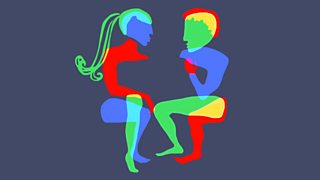Living with OCD: 5 Key Questions Answered
Actor Tuppence Middleton is known for her roles in Black Mirror, War and Peace, The Imitation Game and Mank, among others. She is also a sufferer of OCD, Obsessive Compulsive Disorder.
Tuppence struggles with self-imposed routines that sometimes stop her leaving the house, as well as obsessive mental counting and compulsive checking behaviours.
She also suffers from emetophobia, an intense fear of vomiting, which heightens her excessive preoccupation with cleanliness.
For One to One, Tuppence has three fascinating conversations with fellow sufferers of OCD to try and shed some light on a misunderstood mental health condition.
What is OCD?

Clinical psychologist Dr. Gazal Jones defines OCD as “intrusive thoughts, images, impulses or doubt that cause an incredible amount of distress,” for example “giving someone a fatal illness or inappropriate sexual thoughts or thoughts about harming someone.” The distress caused to the sufferer makes them doubt themselves and, sometimes, even question if they are dangerous.
The other element is compulsion. “After these intrusive thoughts and images pop up,” says Dr. Jones, “a lot of people with OCD feel they've got to do something repeatedly (e.g. washing hands, picking up and putting down objects) to either neutralise the kind of distress or make sure that that obsession doesn't come true in any way.”
The compulsions reinforce the obsessions and, in turn, maintain the distress. As Tuppence says, OCD is “really not about arranging a bookshelf in colour-coded order and then posting a picture on Instagram with #OCD. I wish it was that, trust me.”

How does OCD affect people?
OCD can manifest itself in many ways. Tuppence describes her "mental counting" as an early experience of OCD and that it diversified into more observable habits such as “checking the cooker, checking the gas, checking the light switch… very basic kind of everyday domestic things.”
Sometimes these compulsions have very dramatic manifestations. David Adam is the author of best-seller The Man Who Couldn't Stop: OCD, and the True Story of a Life Lost in Thought; he recounts the incredible story of a teenager in Ethiopia who suffered from intrusive thoughts about the mud wall of her house. To rid herself of them, she would “literally break off chunks of the wall and eat them.” David adds: “As irrational as it sounds, that made her feel better until the next time. By the end of it she’d eaten several square metres of the wall. It went on for years before she ended up getting help.”
David’s own OCD started while at university in the early 1990s with a thought – out of nowhere – that he could have AIDS. He obsessed about a number of irrational ways that he could catch HIV, including being exposed to blood by injuring himself playing football. “I mean, it’s ridiculous, completely irrational. It’s the kind of thing that even if most people ever considered it they just brush it off as ‘well, it's just never going to happen, is it?’ And yet OCD doesn't allow you to do that. You focus instead on the million to one chance of it happening.”

It's not about arranging a bookshelf in colour-coded order...
Tuppence Middleton asks clinical psychologist Dr Gazal Jones to define OCD.
What is Pure O?
Rose Cartwright, co-founder of the mental health charity Made of Millions, and author of the book Pure, suffers from "Pure O", short for "purely obsessional", a form of OCD where the compulsions are hidden. For Rose, these mental rituals stem from intrusive sexual and violent thoughts.
“Someone with OCD would typically be quite hypervigilant and aware of perceived threats in their environment,” explains Rose. “So, if you are walking down the street and then someone walks past you, and you have a mental image of pushing them into the road or hitting them over head.
"For someone with OCD, that will activate a sort of threat response and anxiety response and they'll feel like, ‘oh, there was something in that, does that mean that I want to do that?’ Some people think that they might have actually done it, and they'll look back and check. Every time you engage in compulsions, you make that doubt come back tenfold.”

How can OCD be treated?
Despite OCD being a condition that cuts across sex, gender, ethnicity and social and cultural groups, there can be a stigma attached in some societies when it comes to revealing mental health conditions. Even without that hurdle, sufferers are often anxious about reaching out and, if the compulsions are internalised, it’s hard for family members to help.
When that treatment does come, as Dr Jones explains, it does do in the form of CBT (Cognitive Behavioural Therapy) – guided discussions around the thoughts, beliefs and attitudes affecting the sufferer and about coping skills. “If treatment hasn't been effective,” says Dr Jones, “then medication is another option to consider to help them make the most of that therapy.”
For David, it was the concern that his new baby daughter would become part of his OCD routine that prompted him to seek treatment. “I had a very high dose of an antidepressant drug, which I still take, and they gave me CBT. In my case, I performed a check to make sure that there was no blood on my hands. I let the anxiety play out. The theory is that once you feel the anxiety go away by itself, then you’re slower to reach for that reassurance the next time. And in doing so, you break that cycle.”
Could Covid be a jumping-off point for OCD?
David Adam thinks that more cases of OCD will arise from the pandemic, but that is to be expected based on historical precedent.
“We saw it with swine flu a decade or so ago, we've seen it with asbestos in the 60s, and when I was researching the book, I found people from a century ago who were exactly like me over syphilis. I think we apply [OCD’s] tendencies and behaviours to whatever circumstance that we grow up in.”
-
![]()
One to One: OCD
In her three-part series, OCD, Tuppence Middleton is on a mission to find out more about the disorder – and herself – and to bust some myths along the way.

Essential podcast listening on Radio 4
-
![]()
Intrigue: Mayday
Mayday: When James Le Mesurier fell to his death he left behind a tangle of truths and lies.
-
![]()
The Battersea Poltergeist
A paranormal cold case, re-investigated through a thrilling blend of drama and documentary.
-
![]()
Fortunately... With Fi and Jane
Jane Garvey and Fi Glover share stories they probably shouldn't with guests from Radio, TV and podcasting.
-
![]()
Grounded with Louis Theroux
Stuck at home, Louis is using the lockdown to track down some high-profile people he's been longing to talk to.





